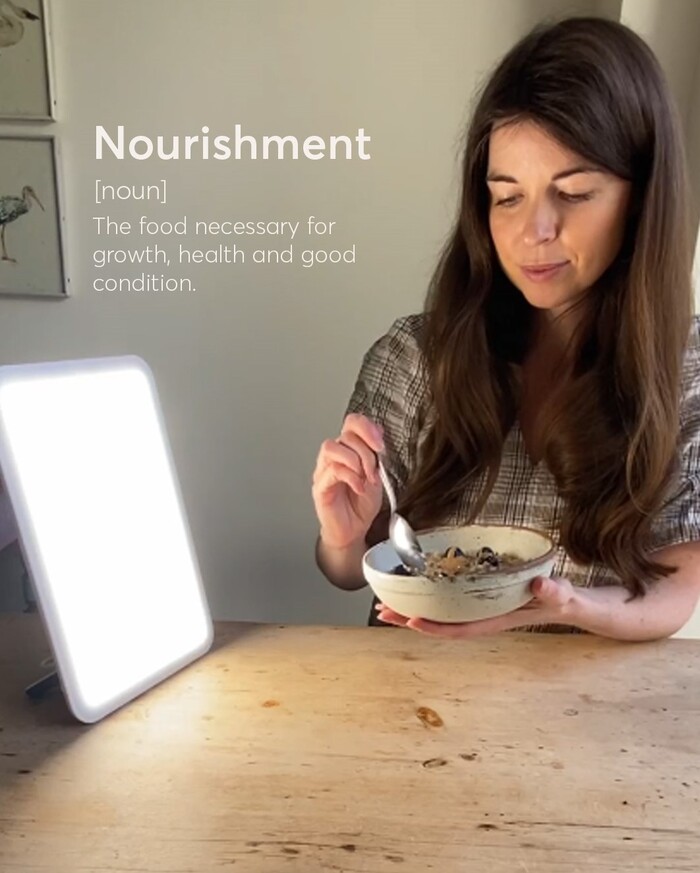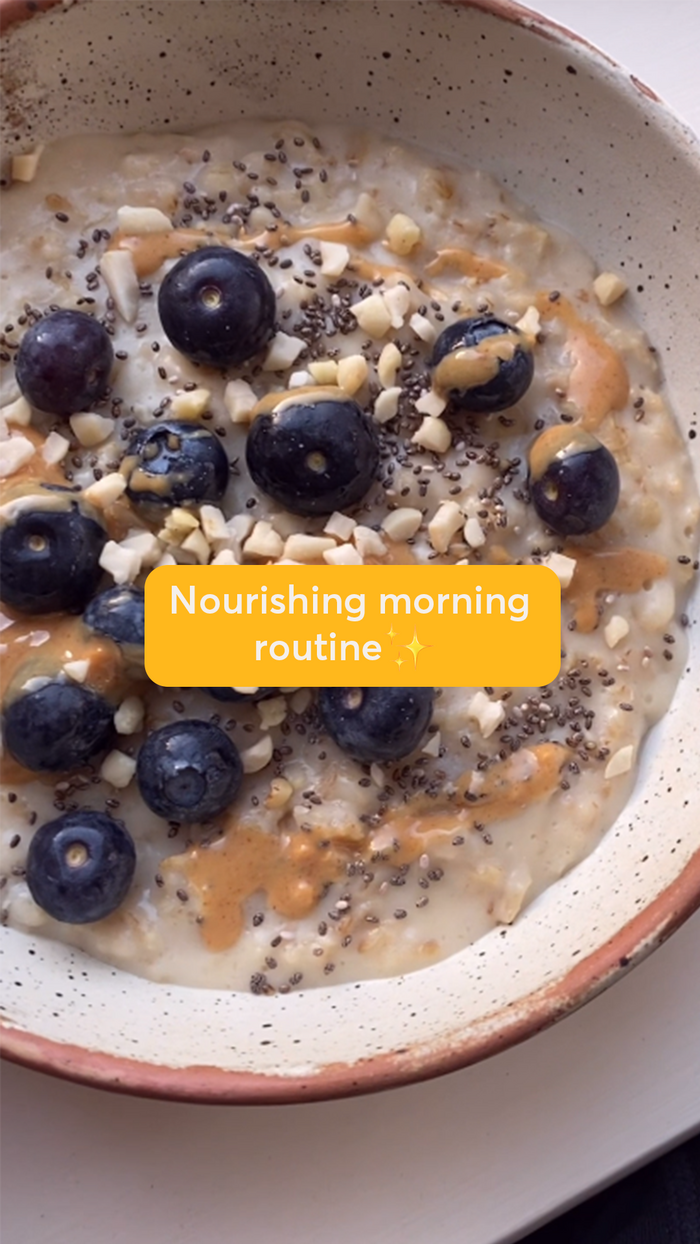Nourishing Your Body for SAD and Better Mood with Nutritionist Sophia Hill

We all know how light therapy can help treat the symptoms of Seasonal Affective Disorder during the winter months, but did you know that your diet and lifestyle choices can have a huge impact on your energy and mood too?
This week’s expert, Nutritional Therapist Sophia Hill, talks about the importance of gut health, teaching us which foods to include in our diets to boost mood and serotonin levels, and even reduce anxiety.
It is so important that we nourish our bodies and give them all the good stuff they need, so read on for all Sophia’s top tips!
Interestingly, about 90% of serotonin is actually produced in our gut. So, when we’re thinking about how to improve our mood and manage Seasonal Affective Disorder, we always have to think about our gut health as well. Remember that having a probiotic supplement doesn’t automatically mean good gut health. You need to feed those probiotics with prebiotic rich foods, such as onions, garlic, leeks, oats and bananas. These types of foods contain different fibres that helps to feed that good gut bacteria.
We can also support our mood by including certain foods, like omega 3 rich foods, which are high in anti-inflammatory fats. We can find those in things like oily fish, flax seeds, chia seeds and they are really supportive of our brain health, so the more we can get in those the better!
Tryptophan is an essential amino acid that cannot be produced by the human body and must be obtained through your diet. Tryptophan is actually the precursor to serotonin and we can get it from things like turkey, chicken, oats, tuna, nuts and seeds. So, trying to incorporate those as well will help with your production of serotonin.
Blood sugar balancing means pairing carbohydrate heavy meals with a source of protein or healthy fats to help slow the absorption of your carbohydrates or sugars into the blood, causing less of a spike of blood sugar. Over time, this can reduce our cortisol secretion, because cortisol has to be released if your blood sugars are imbalanced. If you struggle with anxiety, these spikes in cortisol from imbalanced blood sugar can worsen your mental health, so it’s really important to be eating well balanced meals.
Usually, we get most of our vitamin D from the sun, but during the winter months when days are short and dark and so much less of our skin is exposed to daylight, our body’s ability to make its own vitamin D is drastically reduced. Everyone should be supplementing vitamin D throughout winter to keep levels of this vital vitamin at their most optimum. As well as supplementing vitamin D, there are low levels of vitamin D found in oily fish, eggs and mushrooms. Top tip – if you leave your mushrooms on the windowsill where there is sunlight, the mushrooms do absorb more vitamin D!
In terms of lifestyle, if yours is mostly sedentary, you want to make sure you’re moving enough and getting outside as much as you can. It’s recommended that we get a minimum of 30 minutes of daylight exposure per day. When daylight is limited in the winter, bright light therapy simulates that light we should get from the sun, which has been a game-changer for me. I have my Vitamin L light on when I eat breakfast in the morning, or I’ll sometimes have it on at my desk while I’m working.
We’d love to know if you’ve found these tips helpful! Want to hear more from Sophia? She has also talked through all her top tips over on our Instagram, which you can find here. If you’re looking for more advice on all things nutrition and gut health, head over to Sophia’s Instagram. We’d like to thank you all for joining in with our Wellness Wednesday series this January and you can watch any of them back on our Instagram.






